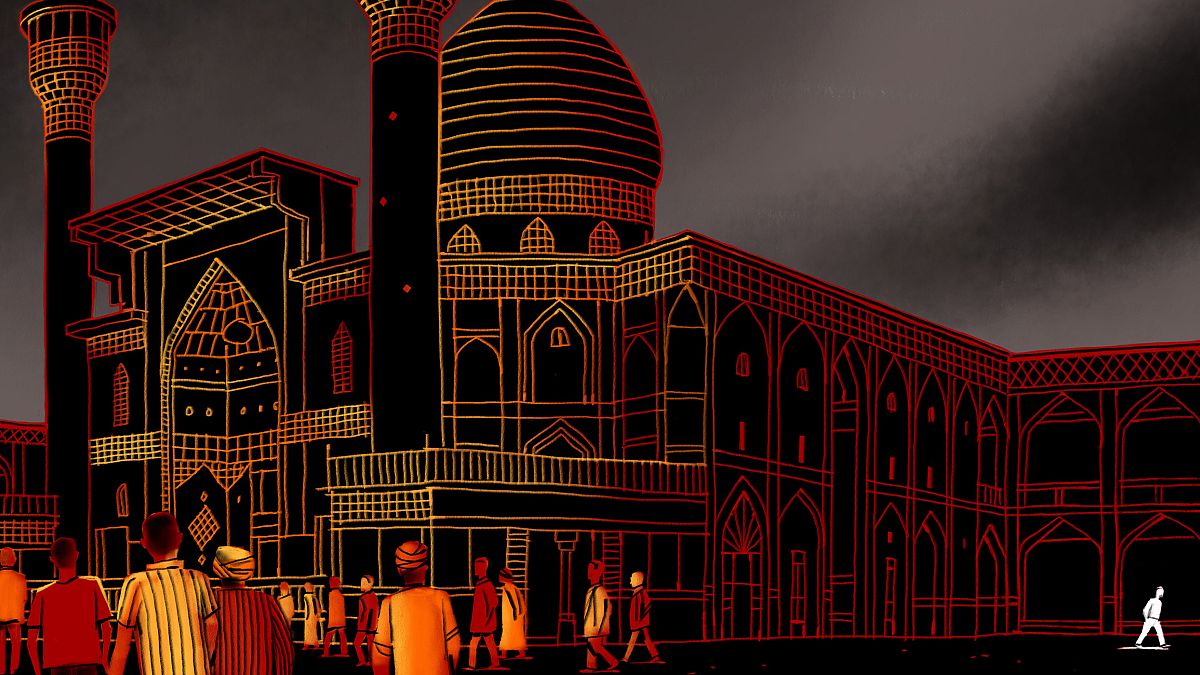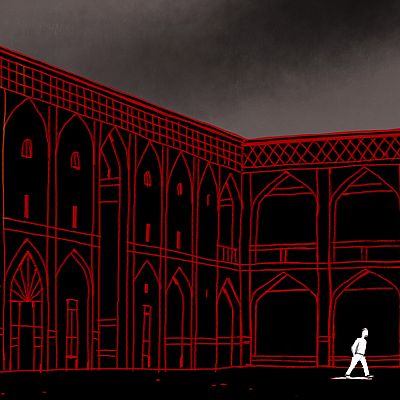"A wave of atheism will overwhelm Iraq because of the wrong practices of Islamic parties," one Muslim scholar said.
Fadi does not believe in God, and he is terrified.
In a Baghdad cafe, the medical student sits far from other customers, and glances over his shoulder to make sure nobody is watching and listening.
"I am afraid of being discovered — then I would be killed," he says in a voice that rarely rises above a whisper. "This may also harm my family, although none of them know that I don't believe."
Fadi, 23, says that he could be targeted for believing that God and all of the world religions are human inventions. To avoid detection, he deletes all searches on his computer and cellphone.
Like all of the 20 atheists NBC News spoke to, Fadi asked to be identified by a pseudonym to avoid being targeted by militias or police.
Although Islam is the state religion and it is against the law to slander or insult any faith, atheism itself is not illegal in Iraq, according to legal expert Ali al-Timimi. Anecdotal evidence suggests a small but growing community of Iraqi agnostics and atheists in the Muslim-majority country. One Facebook page called Iraq's Agnostics and Atheists has nearly 13,000 likes and 17,000 followers.
“We used to hear that Islam is the religion of peace, but ISIS behaved like monsters, barbarians and even worse.”
But power, violence and religion are a toxic mix.
Many of Iraq's unbelievers have been forced underground as religious hard-liners battle for control of the young democracy, which is struggling to balance the demands of both Sunnis and Shiites, plus smaller ethnic and religious communities.
Since the dictator Saddam Hussein was toppled by the 2003 U.S.-led invasion, theocratic Shiite Iran has grown in power in Iraq. Powerful Shiite organizations control key parts of the government, such as the Interior Ministry, which is dominated by the hard-line Iran-linked militia, the Badr Organization.
The war-ravaged country is inching toward a semblance of normality after largely defeating the Islamic State group, which had conquered swaths of its territory. Propelled by widespread Sunni anger at Shiite domination, ISIS fightersenslaved, raped and killed thousands. Dozens of mainly Iran-backed Shiite paramilitary groups were crucial to beating the militant group in 2017, and are blamed for extrajudicial disappearances and killings.
"Have you ever heard of a militia that is formed by atheists?" engineering student Darwin, 21, says. "No, only those who have religion form militias and death squads. They are the reason behind the destruction of life, the destruction of humanity."
Under Saddam, dissenters were targeted and tortured — particularly ethnic Kurds and members of the Islamic Dawa Party backed by Iran. His government also detained his Sunni coreligionists and members of other groups that challenged his rule.
Darwin, who was raised in a devoutly Shiite family in the southern holy city of Najaf, once shared his thoughts on science and religion via Facebook, where he posted under a false identity.
"We used to talk about different issues, and exchange information," he says.
But he deleted this page about a year ago.
"I heard militias had started to chase us, and they had the technology and people to track my account," he says.
News
In a move that struck fear in Iraq's small community of atheists, police in October arrested Ihsan Mousa, the owner of a bookstore in southern Iraq. They accused him of selling works that encouraged readers to reject Islam, according to local media reports.
Col. Rashad Mizel, a local police official, told NBC News that Mousa had been released after promising not to sell the offending books again. The Interior Ministry did not respond to requests for comments on the case. Mousa was not available for comment.
Islamist intellectual and researcher Ghalib al-Shahbandar is alarmed by what he sees as a growing number of nonbelievers.
"A wave of atheism will overwhelm Iraq because of the wrong practices of Islamic parties," he says. "They are what has forced people to avoid Islam and other religions."
Islam is the only major religious group projected to grow faster than the world's population as a whole over the next 30 years, according to a 2015 Pew Research Center study. Still, Shahbandar says, many Iraqis are turning away from God because of falsely religious politicians.
"Most of those who are part of Islamic parties do not shake hands with women in public, but they do in secret," he says. Some conservative Muslims avoid direct contact with unrelated members of the opposite sex.
"I hope that this wave of atheism is not going to grow," Shahbandar adds.
World news
It isn't only young Iraqis who reject the faith of their ancestors. Painter Abu Sami, 52, waited five years after his wedding to confess to his wife that he did not believe in God.
It did not go well.
"At first she refused to stay with me and threatened to tell her parents and ask for a divorce," he says.
Eventually his wife realized that she would not be able to change his beliefs, which were born during a childhood as the son of a communist. These ideas flourished after the U.S. invasion, and during the sectarian civil war that followed.
Abu Sami's atheism is a relatively open secret in his Baghdad home, with his older sons — 21 and 17 — privy to their father's outlook. But the youngest, who is 14, hasn't been told because he might talk to friends and endanger the family.
Abu Sami cites ISIS' actions as an example of the destructive appeal of religion.
"We used to hear that Islam is the religion of peace, but ISIS behaved like monsters, barbarians and even worse," he says.
"Their God did not tell them to kill prisoners, did not tell them to kidnap, and rape women, did not tell them to take women and children as slaves," he added. "Is this a peaceful religion? It is not at all, and I do not want to be part of such a religion."



